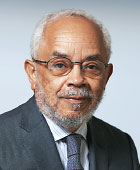The current political discourse encompasses, for some people, a strident call for exclusion of others who come from overseas. The dicta, explicit and implicit, suggest that we foreign born have nothing or little to offer in just about any sphere of life. The irony and madness in this claim always shock me because of its obvious falsity. I have lived long enough in France to say to its extreme right politicians that if we removed their talented foreign masons, carpenters, and painters from France, the country would collapse. A similar thing would happen if we sent away all the foreign taxi drivers, nurses, police, and physicians currently working in the United States. Instead of settling down to organizing a thoughtful immigration system, why do politicians find it easier to lie about us “others” and claim that many of us are simply subhuman? Why can’t we find a structured and workable openness to foreign others? We might have a chance if we started listening to the music from other countries.
I recently attended a musical program focused on Ethiopian classical music. It was my first experience with a public offering of East African music. Luckily for me, I was seated next to an Ethiopian woman who helped me understand the structure of the evening’s program at New York City’s Carnegie Hall. The concert was performed by Girma Yifrashewa, one of the country’s distinguished classical pianists. He gave a title to his performance: “Peace Unto Ethiopia: An Anthology of Original Works & Tributes.” He and other dignitaries at the celebration talked of using music to pull people together. There was also a collective emphasis on peace instead of war. They underlined a third idea: It was important for all countries to have their own music.
My Ethiopian neighbor reprised this point during the intermission and expanded on it, articulating the pride that many immigrants exude when discussing essential characteristics of the former home space. In fact, she took pride in stating clearly that Ethiopia had never been colonized. When I asked about the history of Italy’s presence in the country, she repeated firmly that no one had colonized her country. Italy’s presence was an occupation. The implication was that Ethiopia had withstood the occupation, conserved its dignity, and built an East African identity impregnable to European interference. I liked this woman’s insistence on representing herself and native country, arguing at every step in the manner of those who enjoy quietly resisting the pressures of cultural colonization. She recognized that for some reason, she had engaged in displacement, to migrate away from home. She was still holding on to the indigenous.
The concert itself debuted with a piece dedicated to Emaboy Tsegué-Mariam Guèbrou, a nun of the Ethiopian Orthodox Church who pioneered Ethiopian classical music. Readers may be interested in
The New Yorker article (April 17, 2023), “
The Otherworldly Compositions of an Ethiopian Nun,” in which Amanda Petrusich discussed the life and work of this personage. I learned that Guèbrou was born on December 12, 1923, and died at age 99. She is said to have been influenced by the Western classical canon and ancient liturgical chants. Petrusich described Guèbrou’s piano artistry as soothing and meditative, with the capacity to soften, and evoking the delicacy of early spring. I note that those words, applied by Petrusich to Guèbou, came from an experienced music critic. I found that the description fitted well my own reactions to “The Shepherd With the Flute,” which Yifrashewa played in honor of the nun.
The other Ethiopian piano compositions performed by the evening’s guest artist were melodies reflecting the peacefulness of sleep, celebrating laughter, conveying spiritual messages, and transmitting joy and happiness. It was not at all surprising that a segment of the program included European composers like Chopin, Eric Satie, and Debussy. I knew that Yifrashewa would be tempted to demonstrate his accomplished artistry by tackling the Europeans. I admit, too, I was curious about how he would treat them. I concluded that he was outstanding with the non-Ethiopian composers I knew. I felt like belting out some ululation, which is what my neighbor and many others did throughout the concert. They claimed this pianist as theirs, reveled in a bit of home, and said to the world, “We have good musicians too.” ■

